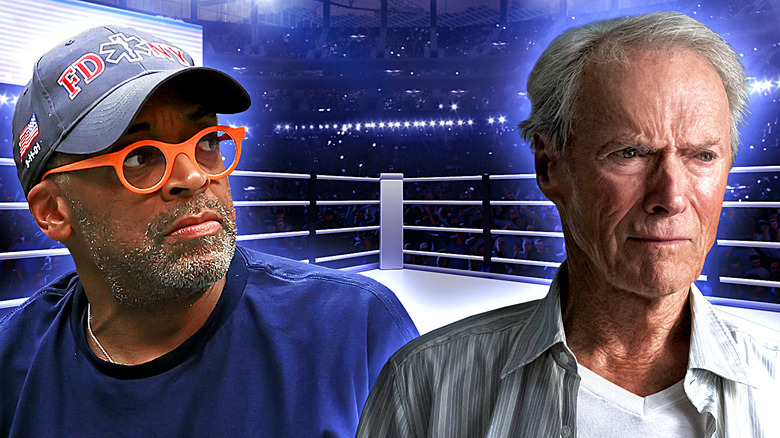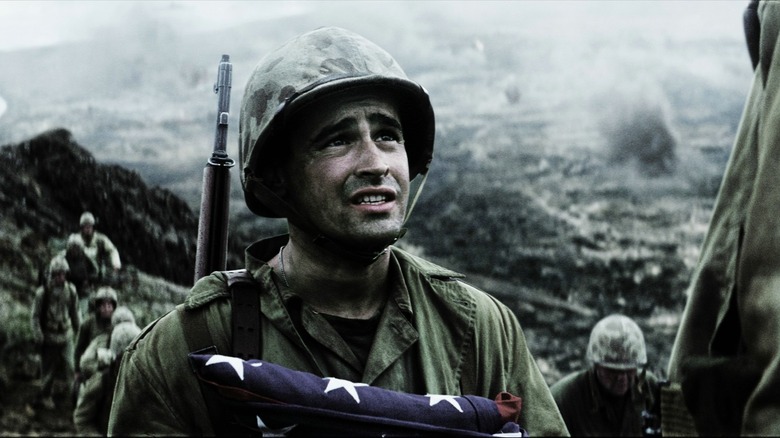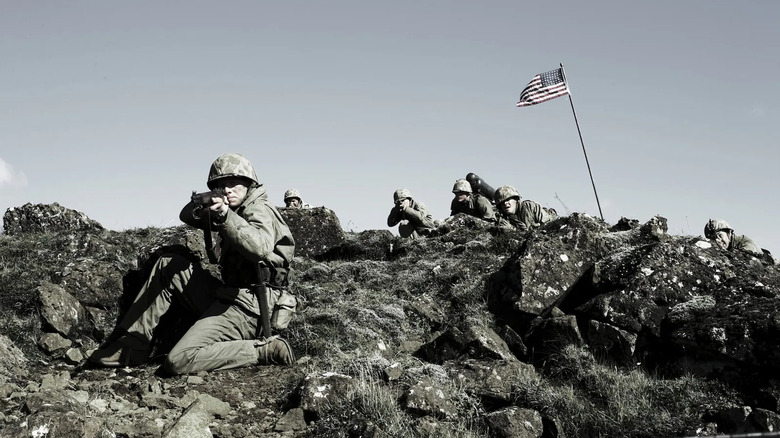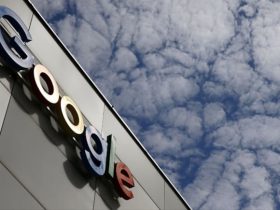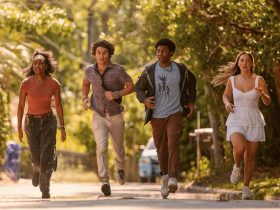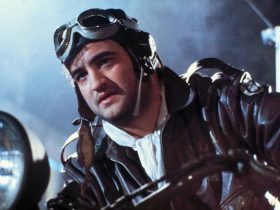We might obtain a fee on purchases constituted of hyperlinks.
Clint Eastwood’s 2006 battle image “Flags of Our Fathers,” primarily based on the ebook by James Bradley and Ron Powers, advised the story of the 5 Marines and one Navy corps soldier who famously raised an American flag on the high of Mt. Suribachi in the course of the 1945 Battle of Iwo Jima. The second was captured in an equally-famous {photograph} by Joe Rosenthal, and it served because the mannequin for the Marine Corps Warfare Memorial in Arlington Ridge Park in Arlington, Virginia. It is one of many extra well-known American photos of the World Warfare II battlefield. Eastwood constructed a whole movie concerning the Battle of Iwo Jima, climaxing with the elevating of the flag.
Eastwood shot “Flags of Our Fathers” back-to-back with “Letters from Iwo Jima,” additionally launched in 2006, which advised the identical story from the angle of the Japanese troopers, diplomatically balancing out the thudding, bland patriotism of “Flags.” Of the 2, “Letters” was broadly thought-about to be the superior movie. It was nominated for 4 Academy Awards, together with Greatest Image and Greatest Director.
Celebrated director Spike Lee wasn’t keen on both of Eastwood’s movies, nonetheless. Certainly, Lee brazenly lambasted Eastwood’s exclusion of Black Marines in each movies, stating that many Black troopers had been certainly current on the Battle of Iwo Jima. Marc Eliot’s 2010 biography “American Insurgent: The Lifetime of Clint Eastwood” particulars the feedback Lee made on the 2009 Cannes Movie Pageant, the place his personal WWII movie “Miracle at St. Anna” premiered. Lee implied that Eastwood was a stodgy previous man who did not even contemplate Black characters for his movies, similar to many Hollywood filmmakers earlier than him.
Eastwood shot again at Lee, saying that the “St. Anna” director’s historical past was a bit off. The battle solely escalated from there, with the pair’s rivalry enjoying out in public. Ultimately, the 2 filmmakers required the intervention of nobody lower than Steven Spielberg to guarantee the warmth was turned down.
Spike Lee and Clint Eastwood butted heads over the function of Black Marines in World Warfare II
In an interview with The Guardian in 2008, Eastwood was lastly made conscious of Lee’s criticisms of “Flags of Our Fathers.” Lee felt that Eastwood was partaking in hurtful historic whitewashing when he seen no Black Marines in Eastwood’s movie, saying to reporters that the movie “was his model. The negro model didn’t exist.” Eastwood defended himself by explaining that the premise of his movie was to discover the circumstances of the well-known Joe Rosenthal picture, and the troopers seen in it. The soldier within the picture had been all white, so Eastwood reasoned he was sure by historical past. “[Black soldiers] did not increase the flag,” he famous. “The story is ‘Flags of Our Fathers,’ the well-known flag-raising image, they usually did not do this. If I am going forward and put an African-American actor in there, individuals’d go, ‘This man’s misplaced his thoughts.’ I imply, it is not correct.”
Eastwood additionally recalled that Lee criticized him for making “Fowl,” a biography of Charlie Parker, again in 1988. Evidently, Lee felt {that a} Black director would have been higher suited to make a biography of a Black icon like Parker, and Eastwood disagreed. “I am enjoying it the best way I learn it traditionally, and that is the best way it’s,” Eastwood said. “After I do an image, and it is 90% Black, like ‘Fowl,’ I take advantage of 90% Black individuals.” Eastwood completed his feedback by saying that “A man like him ought to shut his face.”
Lee learn the Guardian interview, and, naturally, was peeved, saying to ABC Information:
“The person isn’t my father, and we’re not on a plantation both. He is a terrific director. He makes his movies, I make my movies […] And a remark like ‘A man like that ought to shut his face’ — come on, Clint, come on. He seems like an indignant previous man proper there.”
Certainly, the title “Our Fathers” is presumptuous. The flags of precisely whose fathers, Clint?
It took Spielberg to carry Eastwood and Lee’s rivalry to an finish
Lee knew his stuff, nonetheless, stating that he wasn’t making idle accusations. In his personal phrases:
“I am not making this up. I do know historical past. I am a pupil of historical past. And I do know the historical past of Hollywood and its omission of the a million African-American women and men who contributed to the second World Warfare. Not every part was John Wayne, child.”
One would possibly say that Lee’s personal “Miracle at St. Anna,” a WWII movie a couple of platoon of Black troopers, was meant to function a direct rebuttal to Eastwood’s movies.
In Eastwood’s protection, there have been a couple of scenes of Black troopers in “Flags of Our Fathers,” and there was a shot of a Black soldier being carried off the battlefield. These moments, nonetheless, are very, very temporary.
In response to Eliot’s biography, it took Steven Spielberg to calm their tempers. Spielberg served as producer on Eastwood’s two 2006 battle movies, and has additionally referred to as himself a good friend to Spike Lee. The matter was private, so there isn’t a file of the conversations Spielberg had with Lee or with Eastwood, though imaginative cineastes wish to image a lunch the place the three met and talked issues out. Spielberg appears to have introduced the Lee and Eastwood feud to a diplomatic finish, as Lee would finally ship Eastwood a future work-in-progress (sadly unidentified) for a personal screening.
Lee and Eastwood nonetheless aren’t shut mates, however their temporary headbutting over “Flags of Our Fathers” is seemingly a factor of the previous.
